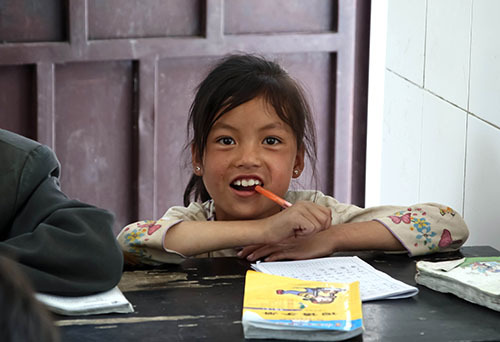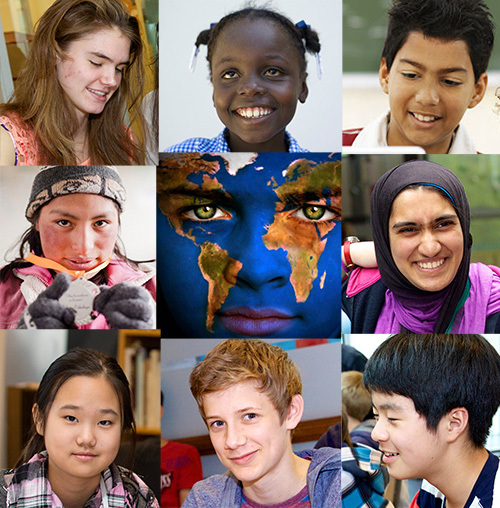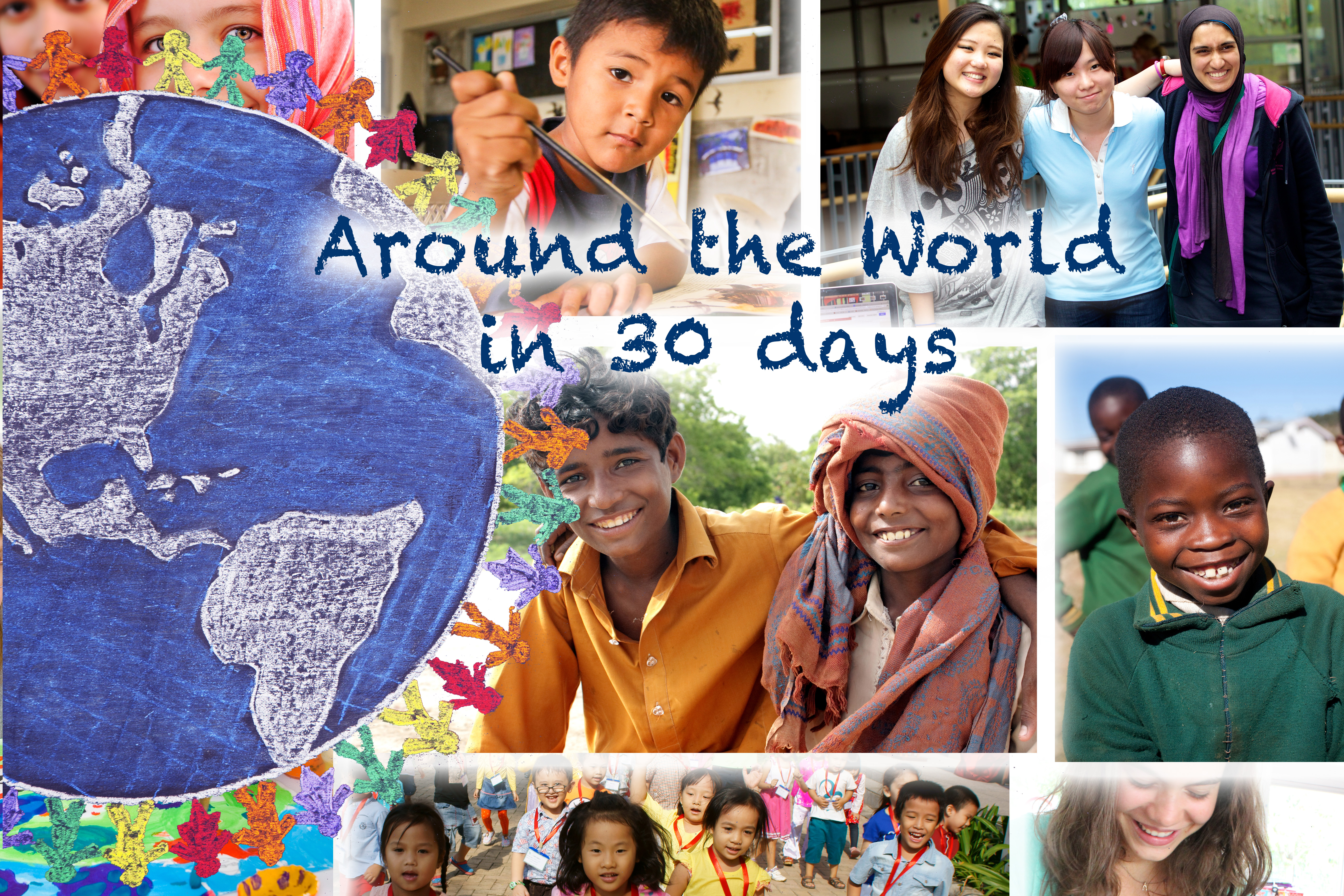
“算術和識字很重要, 但是學習也是幫助人們恢復和重拾對他們最重要的東西的一種手段 – 自己的尊嚴, 自尊心, 尊重對方,” comments Secretary General of the International Federated Red Cross and Red Crescent Societies, 埃爾德傑·阿斯·西, guest speaker at the 16th Education Fast Forward Debate (EFF16), streamed live from the Education World Forum in London and hosted by Programme Director Gavin Dykes. The Secretary General explained that he shared his perspectives from a humanitarian context because it is in crisis situations where learning is more critical than it ever was before.
In a volatile, 不確定的世界, we’ve continued to see the global conversation on 21st century learning shift from the 3 R’s to the relevance of the 4 C'S (通訊, 批判性思維, Creativity and Collaboration). Being ready to develop our own learning capacities, being able to develop the behaviors we now need as individuals, including being willing to learn continuously, are competencies essential to thriving in a globally connected, digitally driven world. So are we learning how to learn these important skills?
As a continuation to EFF16 Learning Literacy by Design 辯論, 全球搜索教育 is pleased to welcome EFF Co-Founder, Supporter and Trustee, and CEO of Imagine Education, 吉姆·永利; Senior Education & Technology Policy Specialist and Global Lead for Innovation in Education at the World Bank, 邁克爾·卡爾; and Lecturer in Media, ICT and Digital Literacy from Volda University College, 喬恩·哈曼.
先生們, what does learning literacy mean in the context of the first half of the 21st century, the knowledge economy, and the key competencies required to be a significant contributor?
喬恩·哈曼: The ability for sustainable self learning is a crucial and extensible skill for a significant contributor. 然而, much of education seems to be focused on the wrong elements of this.
吉姆·永利: 首先, how do I develop myself as an individual, 其次, how do I develop my behaviours so that I bring value to the communities (economic and social) that I would like to work within.
邁克爾·卡爾: 由 “學習識字”, my assumption is that we are referring to what people characterize as “學習如何學習”. There are many ways to approach it. Neuroscientists and behavioral psychologists may speak about cognition, economists may speak about incentives, educators may talk about engagement, parents may talk about role models and motivation, folks in the private sector about mentorship. Presumably formal schooling is, at one level, an experiment in promoting ways for students to ‘learn how to learn’ as they explore various academic subjects and disciplines (language arts, 科學, 數學, 歷史, 等等).

How does the learning literacy that needs to be taught today compare to what was needed in the last half of the 20th century?
吉姆·永利: We have never taught people how to learn. We have confused the teaching of soft skills as teaching learning, but it wasn’t. The so-called soft skills (溝通, 問題解決) were not important in the first half of the 20th Century as people were not expected to think critically or ask why. And as the century went along, the capacity of technology drove a change in behaviours which raised the soft skill issue.
So we do not have a learning literacy wisdom to fall back on and worse, we haven’t developed assessment regimes to match.
喬恩·哈曼: 在許多方面, the core aspects of learning have not changed, but education has become more systemic as more have gone through the system. That system needs to change and embrace some more basic learning skills.
What are the most effective methods you are aware of to teach learning literacy? Is it a discipline unto itself? Is it best integrated into other academic disciplines? What needs to change compared to the traditional ways of integrating this into curriculum?
喬恩·哈曼: Develop an inquisitive mindset. Design curricula that ignite curiosity. Create learning environments that enable experimentation. I have found applying learning design approaches to enable a rounded pedagogical approach works well.
吉姆·永利: Throw away the shackles of seeing learning literacy, which is a set of behaviours, as being described using the same rubrics that we used to describe skill and knowledge acquisition. Being able to recall facts about learning is no substitute for living the learning ideas. We have to find a new way of talking about behaviours and we need a new set of semantics also. The best example I know of is from the RSA in the UK.
邁克爾·卡爾: It is worth noting that fundamental to learning of any sort is literacy, the ability to read and write. Without this basic competency, many types of learning are extremely difficult, if not inaccessible. Experts talk about the critical inflexion point that occurs around a child’s third or fourth year in school, when things transition from exercises geared primarily to help children learn how to read to activities where students begin reading to learn. 此外, we are learning more and more about the critical links between someone’s health and their ability to learn. Nutritional deficits or health-related traumas in early childhood, and even in the womb, have been shown to have deleterious effects on someone’s ability to learn far down the road, and efforts to promote ‘learning how to learn’ would do well to consider the critical importance of early childhood development and prenatal care as part of a larger conception of what’s needed to promote “學習”.
Whatever the various facts, perspectives or ideologies promulgated or taught in today’s schools may be, there can be little doubt that the development of processes and habits which promote critical engagement with such things will be of great importance to students as they go about their lives. Whether related activities are categorized as part of efforts to promote “21st century skills” 或者是其他東西, there can be little disagreement today that, for schooling to be ‘effective’, it cannot be about providing students with “the answers”, but rather in helping them to develop their own abilities and curiosity to ask the right questions.

How will advancement of learning literacy translate into closing the gaps?
吉姆·永利: I believe that a smart nation is a function of its learning capital and state of its learning society. Unless nations have a strategy to build smart human capital where every citizen has a learning ethos, then they will fall behind even further. The great promise is that if nations can exploit the capacity of technology, they can provide the systems for individuals and groups to flourish.
喬恩·哈曼: It’s about developing practice better, supporting teachers better.
What is the link between economic growth and a society’s capability to learn? In what ways does it affect economic development?
吉姆·永利: This has been done by Joseph Stiglitz in his Creating a Learning Society 書. He and his co-authors see learning – not as an activity but as a frame of mind – as being central to economic growth, and point to this as an explanation for South Korea’s huge success.
喬恩·哈曼: I have deep reservations on how the correlations of education policy and economic development have developed, particularly the “deliverology” mindset that when put under some scrutiny, doesn’t fully correlate.

How can learning literacy affect innovation and entrepreneurship? What does it mean in the context of some of the challenges facing the world – 移民 – 氣候變化 – 收入差距, 等?
吉姆·永利: I believe the UN Sustainable Development Goals will fail unless we cover all of the aims with a nice big thick spread of learning within each goal and between them too. Nobody invented anything new – the big inventions are when somebody learns from others and adds a few components together to invent something. All inventors are natural learners. Unless we help people learn how to learn, we will deny the inventors and entrepreneurs of the future access to their own potential.
喬恩·哈曼: I am seeing profound exciting work in the tech space solving these problems and they have a growth mindset in terms of learning; an Illich mantra is often cited to me by such people – yet they are the positive deviants breaking and fixing problems better than any class I see elsewhere.
How significant is the gap in learning literacy today? How much impact can the advancement of learning literacy have on wealth distribution among nations and among individuals?
吉姆·永利: Huge. 在英國, the curriculum is so swamped, that creativity in all but the bravest schools is an afterthought. In emerging countries, 但, there is a real movement to bringing learning into K-12 life. Learning literacy is and will be a new concept to many, and a confusion to those that think it is about either life-long learning or 21st century skills. A learning literate citizen is someone that always strives to do better in all they do and to learn from the best. It isn’t a person that does a bee-keeping course on retirement or someone that hones their presentation skills: those are 20th century ideas about the 21st century. Learning literacy is an ethos, a culture and a way of life.
喬恩·哈曼: I am concerned that learning literacy or advancement of it can be a false promise to wealth distribution because it thinks we’re starting from an equal starting point. We have seen across so many spectrums that privilege is so much an enabler rather than meritocracy, so I have some reservations about the promises.
Listen to the entire EFF16 Debate
該 17th Education Fast Forward Debate (EFF17) will take place on Monday, 三月 7, 2016 during UNESCO Mobile Learning week.

(All photos are courtesy of Shutterstock.com)
和我一樣,全球知名的思想領袖,包括邁克爾·巴伯爵士 (英國), 博士. 邁克爾座 (美國), 博士. 萊昂特司特因 (美國), 克萊克里斯坦森教授 (美國), 博士. 琳達·達林 - 哈蒙德 (美國), 博士. MadhavChavan (印度), 邁克爾·富蘭教授 (加拿大), 霍華德·加德納教授 (美國), 安迪·哈格里夫斯教授 (美國), 伊馮娜赫爾曼教授 (荷蘭), 克里斯汀Helstad教授 (挪威), 讓·亨德里克森 (美國), 玫瑰Hipkins教授 (新西蘭), 科妮莉亞Hoogland教授 (加拿大), 這位傑夫·約翰遜 (加拿大), 太太. 尚塔爾考夫曼 (比利時), 博士. EijaKauppinen (芬蘭), 國務秘書TapioKosunen (芬蘭), 多米尼克·拉方丹教授 (比利時), 休·勞德教授 (英國), 主肯麥克唐納 (英國), 傑夫大師教授 (澳大利亞), 巴里McGaw教授 (澳大利亞), 希夫納達爾 (印度), Ř教授. 納塔拉詹 (印度), 博士. 吳PAK (新加坡), 博士. 丹尼斯教皇 (美國), 斯瑞達拉賈戈帕蘭 (印度), 博士. 黛安·拉維奇 (美國), 理查德·威爾遜·賴利 (美國), 肯·羅賓遜爵士 (英國), 帕西SAHLBERG教授 (芬蘭), 押尾佐藤教授 (日本), 安德烈亞斯·施萊歇 (PISA, 經合組織), 博士. 安東尼·塞爾頓 (英國), 博士. 大衛·謝弗 (美國), 博士. 基爾斯滕都沉浸式 (挪威), 總理斯蒂芬·SPAHN (美國), 伊夫Theze (LyceeFrancais美國), 查爾斯Ungerleider教授 (加拿大), 托尼·瓦格納教授 (美國), 大衛·沃森爵士 (英國), 迪倫Wiliam教授 (英國), 博士. 馬克沃莫爾德 (英國), 西奧Wubbels教授 (荷蘭), 邁克爾·楊教授 (英國), 和張民選教授 (中國) 因為他們探索所有國家今天面臨的大畫面的教育問題.
全球搜索教育社區頁面
ç. M. 魯賓是兩個廣為傳誦的在線系列,她接受了筆者 2011 厄普頓·辛克萊獎, “全球搜索教育” 和 “我們將如何閱讀?” 她也是三本暢銷書, 其中 真正的愛麗絲夢遊仙境, 是的發行 CMRubinWorld, 而且是干擾物基金會研究員.
按照ç. M. 魯賓在Twitter: www.twitter.com/@cmrubinworld






最新評論